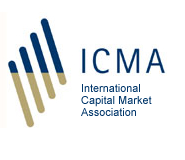This article has multiple issues. Please help improve it or discuss these issues on the talk page . (Learn how and when to remove these messages)
|
 | |
 | |
| Abbreviation | ICMA |
|---|---|
| Predecessor | International Primary Market Association and the International Securities Market Association |
| Formation | 1969 in Zurich |
| Type | Nonprofit Trade Association |
| Purpose | Advocate for the debt capital market participants |
| Location | |
| Locations | |
Region served | Worldwide, with focus on Europe |
| Services | Trade group & Advocacy group |
| Website | www |
The International Capital Market Association or ICMA is a not-for-profit global trade association, for participants in the cross-border debt capital markets, [1] with offices in Zurich, London, Paris, Brussels and Hong Kong.
Contents
ICMA provides industry-driven standards and recommendations. ICMA works with regulatory and governmental authorities, helping to ensure that financial regulation supports stable and efficient capital markets.
Since 2014, ICMA has been providing the Secretariat for the Principles (the Green Bond Principles (GBP), the Social Bond Principles (SBP), the Sustainability Bond Guidelines (SBG) and the Sustainability-Linked Bond Principles (SLBP)) that underpin the global sustainable bond market. Since December 2022, ICMA has also been providing the Secretariat to the voluntary Code of Conduct for ESG Ratings and Data Providers.
Originally established in Zurich under Swiss Law (Zurich) in February 1969 as the Association of International Bond Dealers (AIBD), the International Capital Market Association was formed in July 2005 from the merger of International Primary Market Association and the International Securities Market Association (formerly the AIBD) to create an association that covered both primary and secondary international capital markets.